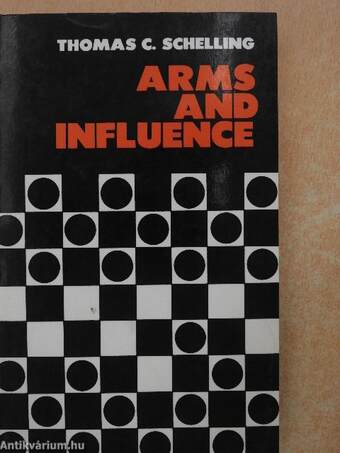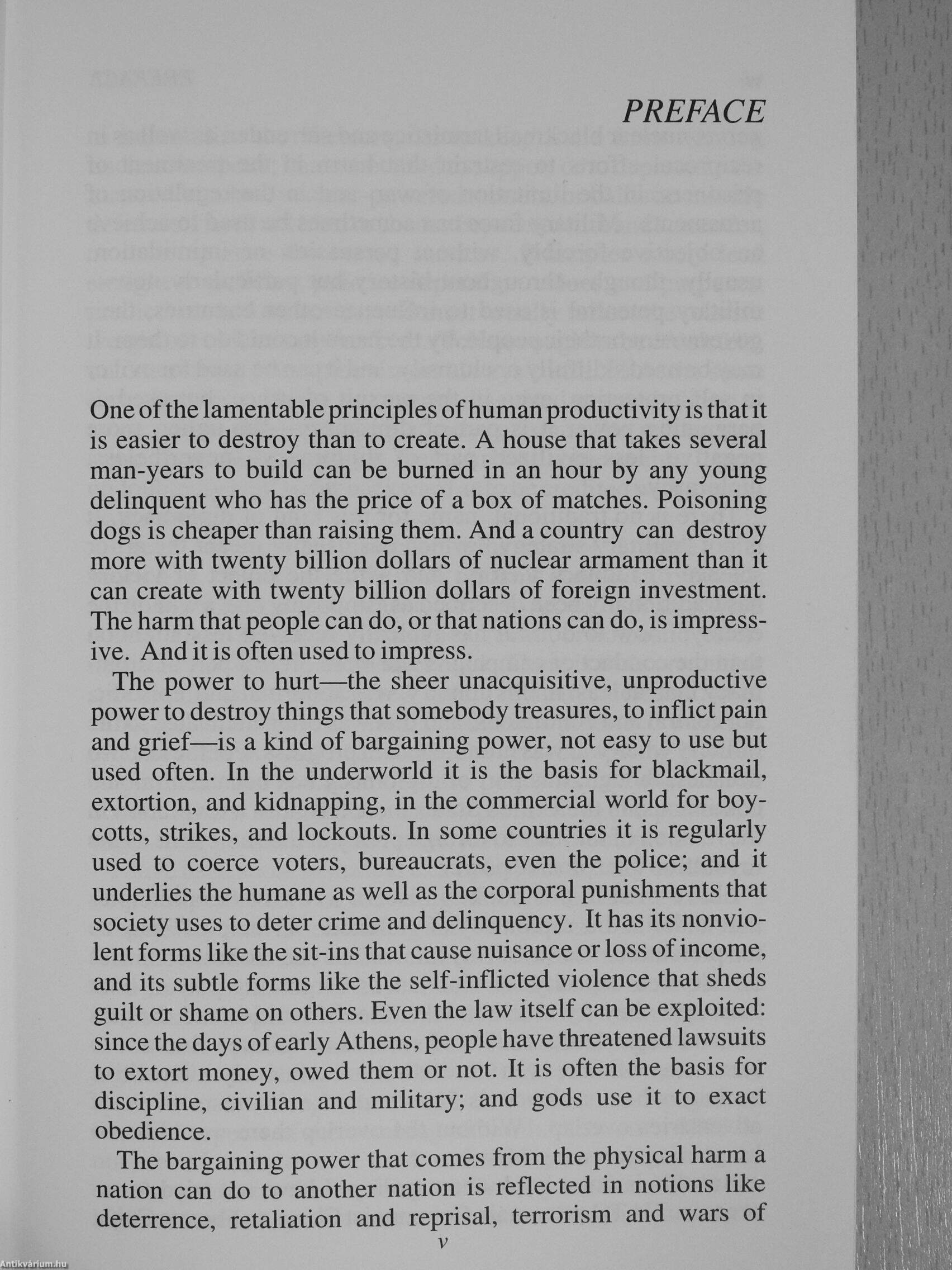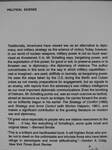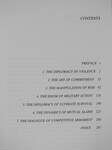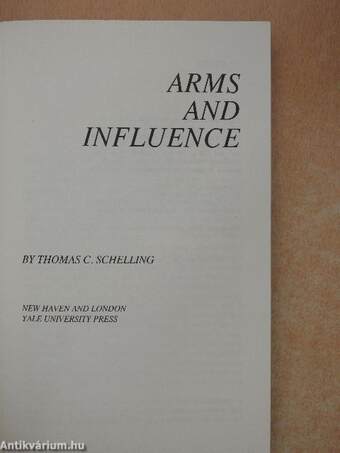1.125.547
kiadvánnyal nyújtjuk Magyarország legnagyobb antikvár könyv-kínálatát
Arms and Influence
| Kiadó: | Yale University Press |
|---|---|
| Kiadás helye: | New Haven-London |
| Kiadás éve: | |
| Kötés típusa: | Ragasztott papírkötés |
| Oldalszám: | 293 oldal |
| Sorozatcím: | |
| Kötetszám: | |
| Nyelv: | Angol |
| Méret: | 21 cm x 13 cm |
| ISBN: | 0-300-00221-1 |
naponta értesítjük a beérkező friss
kiadványokról
naponta értesítjük a beérkező friss
kiadványokról
Előszó
TovábbFülszöveg
POLITICAL SCIENCE
Traditionally, Americans have viewed war as an alternative to diplomacy, and military strategy as the science of victory. Today, however, in our world of nuclear weapons, military power is not so much exercised as threatened. It is, Mr. Schelling says, bargaining power, and the exploitation of this power, for good or evil, to preserve peace or to threaten war, is diplomacy—the diplomacy of violence. The author concentrates in this book on the way in which military capabilities— real or imagined—are used, skillfully or clumsily, as bargaining power. He sees the steps taken by the U.S. during the Berlin and Cuban crises as not merely preparations for engagement, but as signals to an enemy, with reports from the adversary's own military intelligence as our most important diplomatic communications. Even the bombing of Vietnam, Mr. Schelling points out, was as much coercive as tactical, aimed at decisions as much as bridges. He carries fonward the analysis so... Tovább
Fülszöveg
POLITICAL SCIENCE
Traditionally, Americans have viewed war as an alternative to diplomacy, and military strategy as the science of victory. Today, however, in our world of nuclear weapons, military power is not so much exercised as threatened. It is, Mr. Schelling says, bargaining power, and the exploitation of this power, for good or evil, to preserve peace or to threaten war, is diplomacy—the diplomacy of violence. The author concentrates in this book on the way in which military capabilities— real or imagined—are used, skillfully or clumsily, as bargaining power. He sees the steps taken by the U.S. during the Berlin and Cuban crises as not merely preparations for engagement, but as signals to an enemy, with reports from the adversary's own military intelligence as our most important diplomatic communications. Even the bombing of Vietnam, Mr. Schelling points out, was as much coercive as tactical, aimed at decisions as much as bridges. He carries fonward the analysis so brilliantly begun in his earlier The Strategy of Conflict (1960) and Strategy and Arms Control (with Morton Halperin, 1961), and makes a significant contribution to the growing literature on modern war and diplomacy.
"Of great value especially to people who are relative newcomers to the field It has, like everything of Schelling's, some quite novel and original ideas."—Bernard Brodie
"This is a brilliant and hardheaded book. It will frighten those who prefer not to dwell on the unthinkable and infuriate those who have taken refuge in stereotypes and moral attitudinizing."—Gordon A. Craig, New York Times Book Review Vissza
Témakörök
- Idegennyelv > Idegennyelvű könyvek > Angol > Történelem > Egyéb
- Történelem > Idegennyelvű > Angol
- Történelem > Politika > Külpolitika > Diplomácia
- Történelem > Politika > Egyéb
- Történelem > Legújabb kor > A hidegháború kora (1946-1991)
- Történelem > Hadtörténet > Hadügy, hadviselés
- Történelem > Hadtörténet > Egyéb
Thomas C. Schelling
Thomas C. Schelling műveinek az Antikvarium.hu-n kapható vagy előjegyezhető listáját itt tekintheti meg: Thomas C. Schelling könyvek, művekMegvásárolható példányok
Nincs megvásárolható példány
A könyv összes megrendelhető példánya elfogyott. Ha kívánja, előjegyezheti a könyvet, és amint a könyv egy újabb példánya elérhető lesz, értesítjük.


